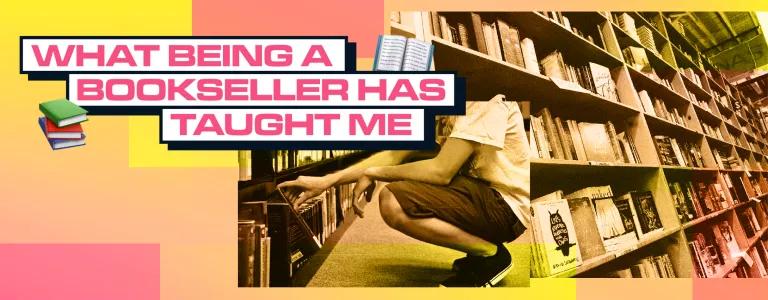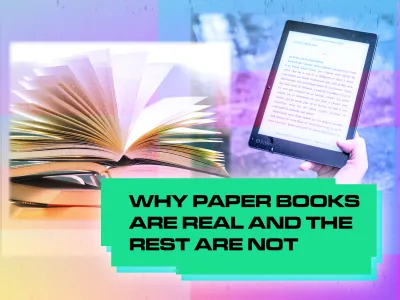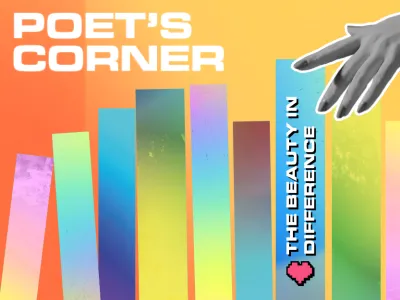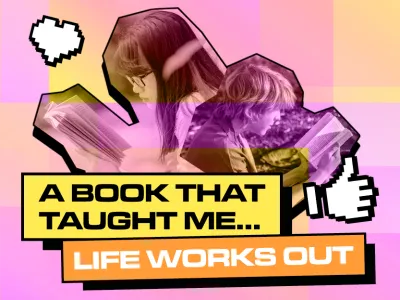
What Being A Bookseller Has Taught Me
On the hottest day of August 2021, I walked into the five story Waterstones in Nottingham to enquire about a vacancy. Immediately, one of the store managers asked me why I wanted to work there and why I care about reading. I gave him the answer I’d rehearsed on the walk into town, about how I’d been involved in my uni’s Poetry Society and how I follow contemporary fiction prizes. I felt like I’d left a good impression but wasn’t entirely convinced of my own answers.

Books have always been a constant source of joy and escape in my life, authors like Jaqueline Wilson and Enid Blyton taught me that there was a world beyond my own, but I’m not as connected to those stories anymore. From the ages of 16 to 22, I was reading to study. Whether it was a novel for my A-Level English coursework, or an academic text at university, the goal of reading was to learn something that I could then use to achieve a grade. I had no idea why I liked reading so much, I just knew that I did.
Before becoming a bookseller, I only read one specific type of literary novel; exclusively prize-winners and bestsellers. Never nonfiction and of course, I was far too mature for children’s books. I’ve since learnt I can have my heart shattered by memoirs and my mind blown by history books. I’ve been reading subjects from archaeology to contemporary feminism, creating a self-driven education that exists outside of high school or university.
Reading requires prolonged attention, unlike endless scrolling through social media, that is fast moving and packed with unpredictable streams of thought coming from different directions. A book requires us to follow a single stream through to the end. But we can put it down, take breaks, and continue reading at our own pace. I’m guilty of seeing one TikTok and thinking I know everything I need to know about a topic. Reading nonfiction encouraged me to think in depth about topics such as feminism and mental health, expanding my understanding and ability to form my own opinions.

I’ve learnt that I’m never too old for children’s books and YA (young adult) novels. Many YA and children’s authors have filled their stories with diverse characters, including those who are openly queer and trans. I’ve read books such as Cemetery Boys by Aiden Thomas (aimed at 13-18 year olds) and The Strageworld Series by L.P Lapinski (aimed at 9-12 year olds) knowing that a younger version of myself would’ve adored these openly trans characters. I can read these books to honour the parts of me that needed them ten years ago.
I’ve sometimes been overwhelmed by the sheer quantity of books that I want to read and the little amount of time I have to read them all.
One of the first lengthy literary books I read this year was The Secret History by Donna Tart, a moody dark academia full of complicated characters who enshrine themselves in scandal and secrecy. It took me six weeks to read, during that time I watched my friends and colleagues finish anywhere between two and eight books. I felt as though I was losing time with other books, falling behind my peers, and that there was some inherent failure in reading slowly.
This sense of failure ended up taking away from my experience as a reader. Instead of being consumed by the vivid imagery of snow falling over a New England campus, shadowy libraries and gloomy student halls where the air is rich with coffee and cigarette smoke, I was focussing on how many pages I’d consumed and how far I was from the next chapter. I had prioritised the quantity of reading over the quality, and this had overwhelmingly impacted my experience of an incredible novel. So this year, I’ve realised that I don’t have to read every book there is and rush through them all.

I’ve been practising a type of slow reading, where I read when I want to and not because I have to. I don’t criticise myself for being too slow and I’m now more than comfortable leaving a book unfinished if I'm not enjoying it. Sometimes, writing is clunky or the plot lacks clarity, but most of the time I won’t finish a book because the story has perpetrated harmful messages about minorities, or romanticised abusive relationships.
I’ve found that Bookstagram and TikTok provide external pressure to read lots of books in short periods of time, and this isn’t always the most rewarding process. Experiencing the story is always more important than the amount we’ve read. Many people, booksellers like myself included, are guilty of owning hundreds of books and only reading a small portion of them. This trend is consistent with our cultural habits of overconsumption. Like the fast-fashion industry, sometimes we buy more than we need.
When I look at my bookshelves sinking from the weight of all the books, I can see hundreds of stories lying stagnant whilst two miles in either direction from my house my public libraries fight against closure from the council. Sharing my books with others doesn’t substitute a fully-funded public library system, and as councils and governments cut public funding the divide between who does and doesn’t have access to books widens. I am starting to reflect on ways I can redistribute my excessive book collection and start supporting efforts to protect local libraries.
Organisations like Save Nottingham Libraries are doing incredible work raising awareness and campaigning against library closure. Over the past decade, councils have closed 800 libraries because of lack of funding. Save Nottingham Libraries has set out to defend against further closures, by staging peaceful protests across the council, spreading awareness on social media, and on local news channels. Their key message is that local libraries are a public cornerstone for free information and education, a line of defence against mental health issues and community hubs that support families in disadvantaged areas.
The last year of being a bookseller has taught me that books allow us to structure a world view based on a self-driven education. They give us the opportunity to see ourselves in diverse characters who are the heroes of their own story. I’ve learnt that bookshops and libraries are at the heart of local communities. They are places where people come together to share and distribute information, through events with authors, writing workshops, or book clubs. Seeing a community of book lovers come together is one of the many reasons I love going into work, and I’m keen to start thinking of ways I can benefit this community in my day to day life.




